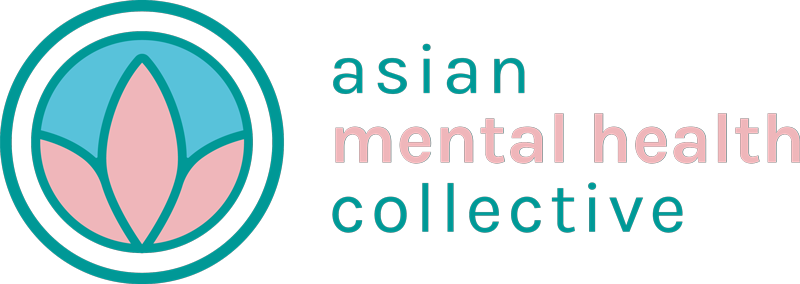By: Jenny Park
I believe that when you are going through depressive episodes, it’s important to look at your situation objectively. But, that’s also the hardest part. Falling into a negative spiral is unfortunately too easy. Everyone has different mental capacities when coping with bad moods, and there is no right or wrong way to handle a difficult situation. In this somewhat personal blog, I will be sharing one of the ways that I found to be most helpful: asking myself questions. Not just any potentially destructive questions, but healthy questions. I often joke with my friends that I have befriended a self-created alter ego named Yeti, who is the one that stays grounded when my real ego acts up. Funnily enough, that silly habit comes in handy.
*I am not a professional and this is based on my personal experience, so please read it with a liberated heart*

The Questions I’ve Learned to Ask Myself
1) “What happened in my environment that affected my mood?”
When I’m feeling down, I become hypersensitive to everything. I get irritated by the tiniest inconvenience and tend to take unintentional offense at people’s actions. My mood used to change drastically by the second and for the longest time, I didn’t know why, which was unsettling. Then, I arrived at the thought that maybe an environmental/external influence triggered something inside me that changed my mood. If I was getting coffee and the barista came off a little rude because she was busy, that somehow ruined my mood. Quite irrational and ridiculous, I know. But, I learned to recognize the alleged cause and effect in these situations. This helped me take a step back and process my surroundings rather than keeping myself in that moody loophole. Identifying specific external mood triggers and being conscious of my internal mood change have helped me keep my emotions organized.
2) “What does this mood mean to me?”
This could also be rephrased as “What is this particular mood telling me about myself?” This is a tough one. Let’s take the barista example I previously mentioned. Although the barista did nothing wrong, in my mind, my “damaged” mood was her fault. This tells me that I am emotionally dependent on how others treat me, to a certain extent, and that dependability could intensify when I’m not feeling that great about myself. Just like that, I learned a new fact about myself. I didn’t quite like this new fact when I realized it, however, this realization also opened the door to accepting it. Once I’m comfortable with this new fact, I could then challenge it.
3) “What can I do from now on?”
I’ve often found myself digging my own grave because I focused on how my past actions didn’t lead to a satisfactory reality – why didn’t I do this yesterday? Why did I waste time when I could’ve done something better? Etc. Well, the past is the past, and there’s always should’ve, could’ve, would’ve’s. Start thinking of what you think you should be doing from now on and go for it. During this process, you slowly start to learn what methods work for you and what doesn’t, so you’ll have a more reasonable expectation for yourself throughout the future.
4) “What meaning can I introduce into my life?”
Living in today’s society, it’s easy to feel empty. One common thought that recurs in my mind when I’m not feeling my best is “What is the meaning of my life?” It doesn’t encourage me to find an answer to the question, rather I immediately feel awful. It quickly shifts to the self-hate track and I always find myself questioning my worth – something that no one should question. Life is what you make of it; you are the pilot of this journey. Instead, we can tweak that and ask “What meaning can I introduce into my life?” Asking this question helps you identify the values, beliefs and behaviors that you want to keep pursuing in the long run. What I really like about this question is that there could be so many answers. It’s non-binary and fluid. And the best part about it is that you get to create it on your own and claim it.
5) “Is this self-pity or victimization?”
I often drown myself in thinking that I am deprived of empathic affection. Wanting attention, I sometimes play Cinderella and make everybody else in my life the mean step-mom and sisters. Whether it’s emotional oversharing in 9 out of 10 conversations I have in a week, or finding solutions to my current problems from my past trauma, I found myself blaming my low self-esteem on my less than ideal childhood to validate my skewed rationale. Then, I would think “only if my dad hadn’t abandoned me” or “if only my mom had validated my feelings growing up, I wouldn’t have hated myself so much.” Maybe that’s true, but even if it is, what can I do about it? I can’t travel back in time and change my life events. Our past shapes who we are, but it doesn’t have to define us. Trust me, I’ve had my fair share of self-pity moments, but it became a habit and I got tired of voluntarily playing the victim when I didn’t have to. Put yourself in different roles – sometimes be the bad guy, sometimes be an outsider, sometimes be a cameo, sometimes be a protagonist. It broadens your perspective on how you look at your life.
6) “What should I try that I haven’t tried?”
I do a lot of research to find subtle non-clinical ways that could help me (you don’t have to do exactly what Buzzfeed or Refinery29 tells you). Staying close to nature, for example. I try to go for a walk near my neighborhood where there’s water and trees. I try to stay close to friends who understand my feelings. I force myself to share my immature emotions when I just want to bottle up. I try to keep an active voice and say things when I want to say it and drop the passivity. There are subtle things you can do that, depending on how you look at them, could be immensely helpful.
7) “If I saw someone feeling the way I am feeling right now, what would I tell that person?”
I think as Asians we are naturally quite empathetic and altruistic. We tend to think of others before ourselves and while that’s a wonderful quality more people should appreciate, it’s easy to leave yourself out of that same care. Think of whatever comment or advice you would want to give and say that exact same thing to yourself. Plug your name in it too (wow, cringe). Tell yourself that because you need that for yourself. It feels cringey at first, but self-empowerment is a great virtue.
Overall, the message I’m trying to communicate in this blog is “know yourself.” Learn how you respond in certain situations and keep yourself cognitively checked in to how you are processing your thoughts/emotions. It’s complicated and honestly a life-long homework that never gets easier. But, it makes you grow. It prevents your mental illness from overpowering you.
If you are going through a rough patch and you’ve gotten yourself out of a negative thought, you should be genuinely proud of yourself. If you couldn’t, that’s still very okay. The attempt is a continuous effort. No need to feel like your mental illness is slowing you down. If any of you are Marvel fans, remember that even the Avengers fought 14,000,605 battles and won only 1, but that one victory became more meaningful because they made it that way. Perspective isn’t everything, but definitely something we shouldn’t ignore. Be your own advocate. Be a kind friend to yourself. Be selfish sometimes.
About the Author

Jenny Park
Jenny is originally from Korea, raised partially as a military “BRAT” (Born Raised And Trained). She is currently based in Huntsville, Alabama working as a Camp Counselor at a local space educational center. Jenny is passionate about bringing mental health issues to the table and supporting communities of color.

